Join my community and receive my free ebook! Subscribe now >>
- Home Page of Holistic BP Health
- Holistic Health for Women of Color Podcast
- The Gratitude Challenge
- Season's Eatings Healthy Holiday Recipe Series
- About Me Overcoming HBP
- Healthy Crocktober Recipe Series
- Solo Build It Affiliate Program
- The Stress Solution Workshop
- Introducing The Weekly Stress Edit
- Eat to Listen: The Body Led Elimination Cooking Kit
Hidden Gut Symptoms: Why Your Skin, Mood, And Energy Speak Up!
Holistic Health For Women of Color Podcast, Episode #102
If your skin is flaring, your mood feels wobbly, or your energy keeps crashing, you’re not “just stressed” you may be seeing hidden gut symptoms. Your gut doesn’t only speak through bloating or bathroom issues; it often whispers through breakouts, brain fog, irritability, restless sleep, and stubborn fatigue.
Here, we’ll connect those dots with warmth and clarity, so you can understand why your skin, mood, and energy speak up when your gut needs care. Expect practical, compassionate insights to help you notice patterns, make gentle shifts, and rebuild balance from the inside out no overwhelm, just steady steps toward feeling vibrant, clear, and grounded again.
Subscribe To These Episodes
Apple Listen on Apple Podcasts Spotify Listen on Spotify YouTube ChannelHolistic Health for Women of Color Podcast Promise
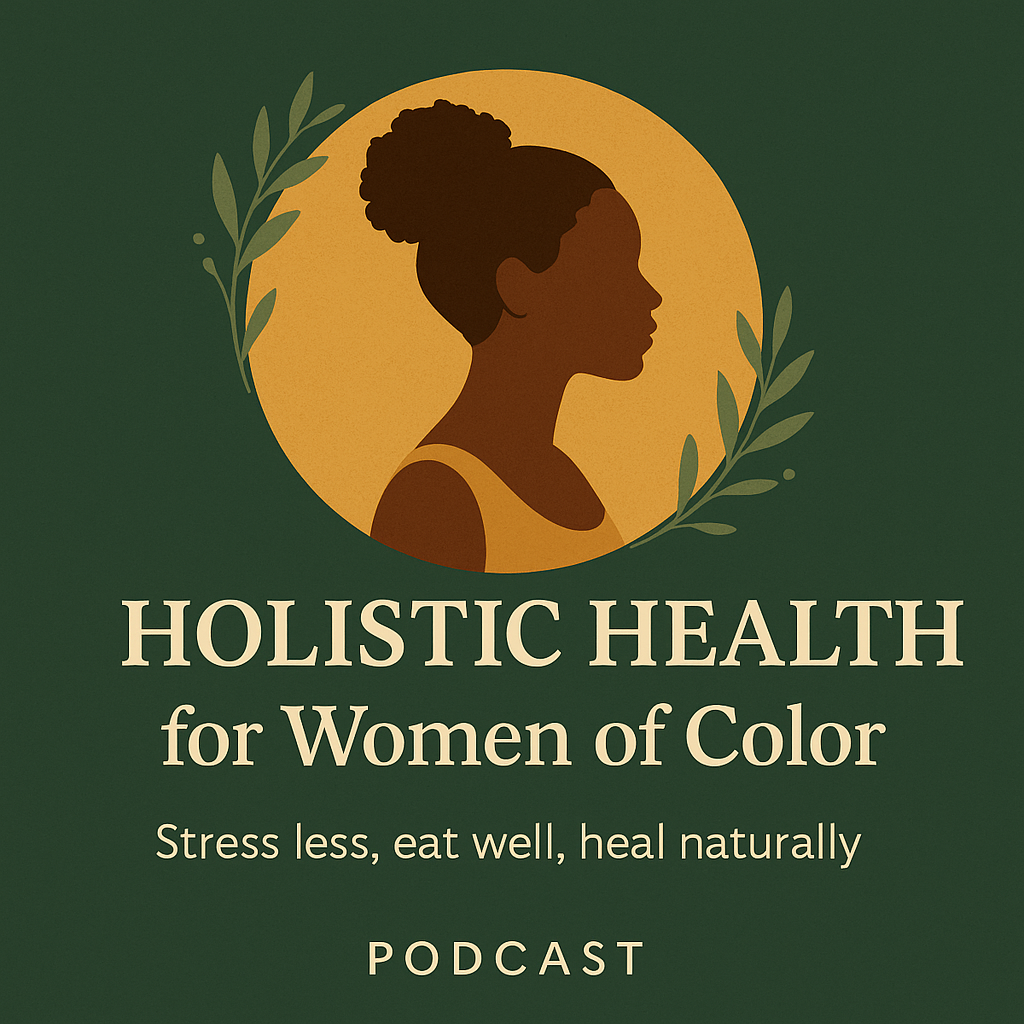
Welcome to Holistic Health for Women of Color, the podcast where we talk about stress, mindset, and natural healing through food, herbs, and lifestyle. I’m Donna Williams, certified holistic health coach and wellness guide who overcame high blood pressure and medication side effects using holistic living. Now, I help women of color reclaim their health, your way.
Today’s topic is on Hidden Gut Symptoms: Why Your Skin, Mood, and Energy Speak Up. Let’s get started.
Hidden Gut Symptoms I Why Your Skin, Mood, and Energy Speak Up Podcast Transcript, Episode #102
You wouldn’t immediately connect mood swings, brain fog, or skin flare-ups to your digestion. Most people don’t. But the gut has a way of influencing nearly every part of the body quietly, steadily, and often without making itself the obvious culprit.
What looks like a hormone imbalance, nutrient deficiency, or stress reaction sometimes traces back to the gut. That doesn’t mean digestion is always the entire story, but it’s often a bigger part of it than we assume.
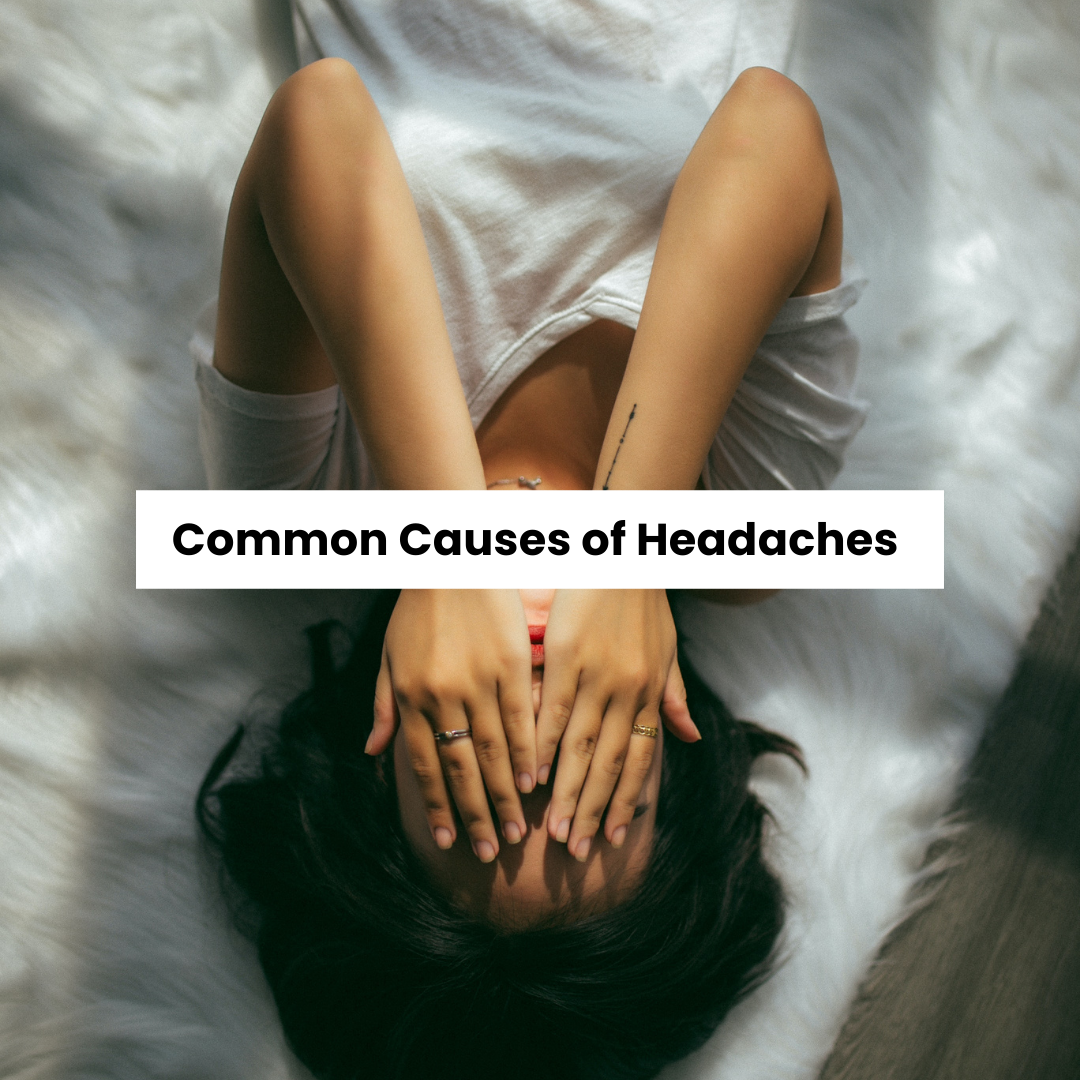
If you’ve ever dealt with brain fog, stubborn skin issues, low mood, heavy periods, joint aches, headaches, or fatigue, and you’ve wondered, “Is this just stress? Just aging? Just my genetics?” This episode is for you. We’re going to unpack how the gut talks to the brain, skin, hormones, immune system, and more, plus practical steps you can start today to support your gut gently and safely.
Quick reminder, this show hidden gut symptoms is educational, not medical advice. Always check in with a qualified healthcare professional for personalized care.
Why this conversation matters, especially for women of color?
Here’s the thing, our bodies are interconnected. And the gut, your digestive tract, your microbiome, your gut lining, is like mission control for so many systems. It produces neurotransmitters, helps train your immune system, influences hormones, and even impacts your skin.
Why These Hidden Gut Symptoms Matters to Women of Color?
We experience high rates of chronic stress, which can directly impact the gut through the gut-brain axis. Many of us are more likely to be lactose intolerant. That’s not a flaw, it’s normal for a lot of people globally, but it can quietly drive symptoms if we don’t know how our gut is reacting.
Healthcare bias can mean symptoms get dismissed, so connecting the dots yourself and advocating for your care is powerful.
Cultural foods can be deeply healing, but we may need to tweak how they’re prepared to be gentle on our gut if symptoms are flaring.
Today, I’ll share common non-obvious gut-related symptoms, why they might be connected, and simple, culturally relevant ways to support your gut.
Gut 101 The Traffic System Inside You
To understand “non-gut” symptoms, here’s a quick 101:

- Gut brain axis: Anxiety that appears without a clear source can feel unsettling. You may notbe stressedin the moment, yet your body feels tense, your thoughts race, and calm feels out of reach.Thisis often where gut-brain signaling comes into play. Your gut and brain talk via the vagus nerve, hormones, and immune messengers. Gut microbes help create some neurotransmitters and short-chain fatty acids that affect mood and focus.
- Gut skin axis: Inflammation in the gut or an imbalanced microbiome can show up as acne, eczema flares, or itchy, reactive skin in some people.
- Gut immune axis: Your gut produces many of the neurotransmitters that shape mood, serotonin, GABA, and others. If your microbiome is out of balance, or if the intestinal lining is inflamed, those signals get disrupted. What begins as digestive dysfunction can show up as emotional turbulence. Do you know about 70% of your immune cells hang out in and around your gut. When that system is irritated, it can ripple out to allergies, sensitivities, joint aches, and more.
- Gut hormone axis: Your gut microbes help process estrogen and other hormones. If your gut is stressed, your hormone metabolism can feel stressed, too.
None of this means “the gut is the only cause.” It only means it’s often part of the picture and a wise place to support.
Symptoms That Don't Seem Gut Related But Often Have Gut Connections
Let’s go through the big ones I see and hear about most.
- When You Have Brain Fog That Lingers: Mental cloudiness, memory slips, or an inability to focus can show up even when you’re sleeping enough and trying your best to stay sharp. These symptoms can be linked to low-grade neuroinflammation, often triggered by food sensitivities or gut-derived toxins that affect the brain. What might be happening: When the gut lining is irritated or the microbiome is imbalanced, the brain can get mixed signals. Inflammation and blood sugar swings can show up as fogginess, anxiousness, or feeling flat. What to notice: Fog after certain meals, mood dips with constipation or diarrhea, or feeling better mentally when your digestion is regular.
- Skin struggles: Acne, eczema, hyper-reactive or itchy skin What might be happening: Gut imbalance can influence inflammation and histamine levels. If you’re constipated, your body may not clear certain by products as efficiently, which can show up on your skin. What to notice: Flares after antibiotics – I must mention that next week’s podcast I’ll be talking about How to Repair Your Gut After Antibiotics, lets get back to what’s to notice, high-sugar weekends, or when you’re not hydrating or pooping regularly.
- Fatigue and poor sleep: What might be happening is disrupted gut rhythms can affect sleep, and poor sleep can disrupt the gut, its a two-way street. Nutrient absorption can also be impacted by gut issues in some people. What to notice: Waking up more tired after late-night meals, or energy crashes tied to bloating or reflux days.
- Hormone symptoms: PMS, heavy or crampy periods, tender breasts. What might be happening: The “estrobolome” a gut microbes that help process estrogen, it can influence how your body handles hormones. If you’re experiencing constipation, estrobolome can make you feel “estrogen-heavy.” What to notice: PMS is worse when digestion is off, or period symptoms improve when fiber and hydration go up.
- Headaches and migraines: What might be happening is the gut-brain connection, histamine sensitivity, dehydration, and food triggers can all contribute. Reflux and constipation can be part of the puzzle for some people. What to notice: Headaches following long gaps between meals, wine/aged cheese/leftovers, or after taking frequent NSAIDs that can irritate the gut.
- Joint aches and body stiffness: What might be happening: The immune system and gut are neighbors. When the gut is inflamed, the immune system may send out “alarms” that you feel in joints or muscles. What to notice: Flares after infections, heavy antibiotic use, or high-stress seasons.
- Recurrent vaginal or urinary symptoms: What might be happening: The gut, vaginal, and urinary microbiomes influence each other. Antibiotics, blood sugar swings, or constipation can contribute to imbalances. What to notice: Recurring symptoms after antibiotics or high-sugar periods, or when hydration is low.
- Seasonal allergies or histamine reactions that feel “louder” than they used to: What might be happening: Gut imbalance can affect how your body handles histamine. Some fermented or aged foods can be delicious but provocative for sensitive folks. What to notice: Flushing, itching, congestion, or headaches after wine, aged cheeses, cured meats, or leftovers.

Important note: None of these mean “your gut is the cause.” They’re invitations to explore the gut as one lever among many.
Gentle Gut-First Steps You Can Start Today
The discomfort you feel in your skin, mind, or mood may be rooted in systems that don’t speak in words, those hidden gut symptoms, but they still communicate clearly when you know what to look for.
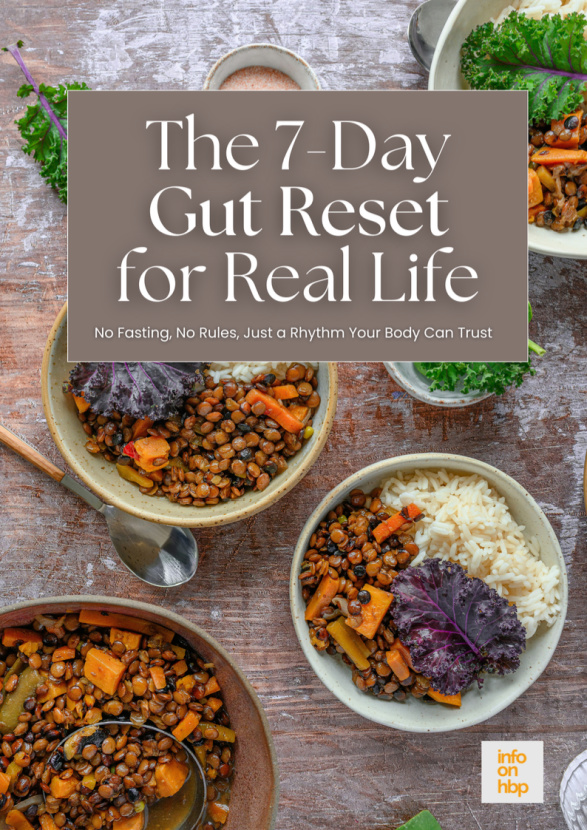
Supporting your gut doesn’t mean becoming obsessed with what you eat. It means respecting the ways your body protects you, processes life, and works hard to bring you back into balance. You don’t have to fix everything. Just begin by noticing what’s already speaking.
But first pay attention before making big changes. Instead of removing whole food groups, get curious. Notice how your body feels after eating. Create space for slow, distraction-free meals when possible. Track how symptoms shift with stress, sleep, or digestion.
I’m all about simple, doable changes that respect your culture, your budget, and your schedule. Pick 1–2 to begin. Consistency beats perfection.
A) Track to connect dots: a 14-day symptom map.
B) Build a gut-friendly plate without giving up culture . To help you with this I have created a Eat to Listen: The Body Led Elimination Cooking Kit program that you can do at your own pace.
C) If dairy bothers you.
D) Calm the gut during flares with “soft landings”.
E) Support regularity.
F) Balance blood sugar for better mood and energy.
G) Stress-slower practices (gut-brain axis love).
H) Fermented foods, if they suit you.
Safety notes on supplements: Not everyone needs probiotics. They can be helpful for some situations but aren’t one-size-fits-all and occasionally cause discomfort. If you’re pregnant, immunocompromised, or have serious health conditions, check with your clinician before starting any supplement.
The discomfort you feel in your skin, mind, or mood may be rooted in systems that don’t speak in words, the hidden gut symptoms, they still communicate clearly when you know what to look for.
Supporting your gut doesn’t mean becoming obsessed with what you eat. It means respecting the ways your body protects you, processes life, and works hard to bring you back into balance. You don’t have to fix everything. Just begin by noticing what’s already speaking.
And, please seek care promptly if you have any red flags:
Book some coaching sessions with me, for me to answer your questions and I’ll also provide you even more details on ‘a day in the life gut-support sample’
A Day In The Life Gut Support Sample
Here's a sample day to spark ideas, adjust for your culture, budget, and taste.
Morning
- Wake, hydrate with warm water or ginger tea.
- 5 minutes of breathing or prayer.
- Breakfast options:
- Black beans, scrambled eggs, sautéed peppers, avocado
- Congee with soft-cooked egg, scallions, and sesame
- Oatmeal with chia, banana, cinnamon, and peanut butter
- 10-minute walk or gentle stretching.
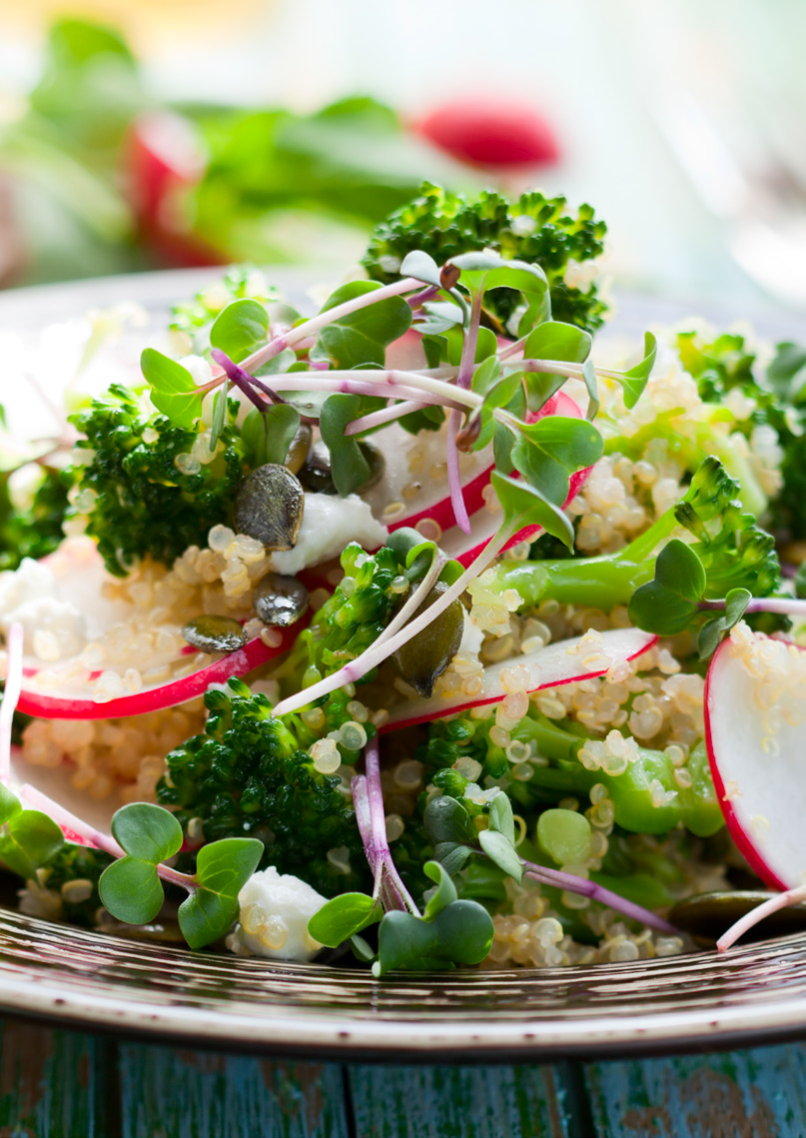
Midday
- Lunch options:
- Rice, steamed fish, callaloo or collards and plantain (moderate portion)
- Quinoa, roasted sweet potato, blackened chicken/tofu and cabbage slaw
- Lentil soup, side salad with olive oil and lemon
- Sip water or herbal tea between meals.
Afternoon
- Snack if needed: fruit, nuts; yogurt/kefir with berries (if tolerated); hummus with cucumbers and carrots.
- 2–3 minutes of deep breathing to reset your nervous system.
Evening
- Dinner options:
- Jollof rice with beans and sautéed greens
- Grilled salmon, millet, and okra stew
- Daal with basmati rice and roasted cauliflower
- Short walk or gentle yoga.
- Wind-down routine: limit screens before bed, dim lights, gratitude journaling.
Note: If reflux bothers you, try finishing dinner 2–3 hours before bed and elevate the head of the bed slightly.
Real Talk Q & A Style Tips
Q: My skin breaks out every time I eat “clean” salads—what gives?
A: Raw veggies can be hard to digest during a flare. Try lightly cooked greens, soups, and roasted veggies. You still get fiber without the gut stress.
Q: Fermented foods make me itchy or give me headaches. Aren’t they supposed to be healthy?
A: Healthy is personal. You may be sensitive to histamine. Skip fermented/aged foods for now and focus on fresh, cooked meals and gentle fibers. You’re not missing out—you’re listening to your body.
Q: I love spicy foods. Do I have to stop?
A: Not necessarily. If spicy meals trigger reflux or loose stools, try milder spice levels, cook with anti-inflammatory herbs (ginger, turmeric, cumin, coriander), and pair spicy dishes with fiber-rich sides to buffer heat. Notice your individual threshold.
Q: I’m always constipated. Help?
A: Hydration, daily walking, and gradual fiber increase can help. Consider a small dose of psyllium with plenty of water. Build a regular morning routine and don’t ignore the urge. If constipation is severe or long-standing, see your clinician.
Q: How fast will I feel better?
A: Some people notice changes in a week or two. For deeper shifts, give it 4–8 weeks.
I want you to think, steady, sustainable progress, not overnight perfection.
Cultural Food Love, Not Fear
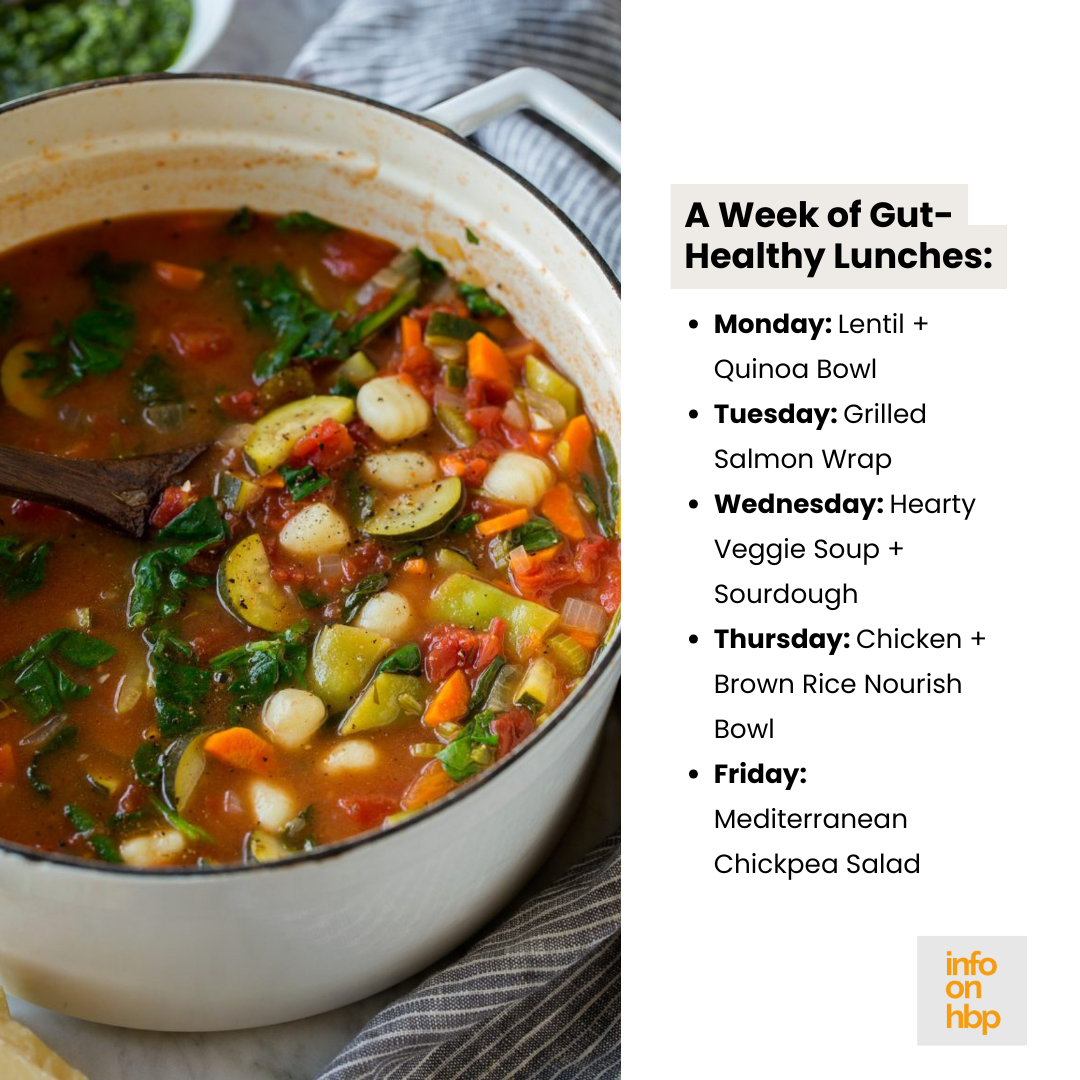
Your culture is not the problem. Often it’s about portion, timing, preparation, and stress. With a few tweaks like:
- Fry less often; bake, roast, or stew more.
- Add a leafy green or veggie to your plate at every meal.
- Use spices for flavor and anti-inflammatory support: turmeric, ginger, garlic, cumin, coriander, cinnamon, thyme, oregano.
- Keep beloved staples and make them work for you: green plantains instead of super ripe; cooled-and-reheated rice; swap heavy cream sauces for coconut milk or cashew cream if that suits you.
Lets Recap
Symptoms that don’t seem gut-related, like brain fog, skin issues, low mood, headaches, joint aches, heavy PMS, or fatigue can have gut connections through the gut-brain, gut-skin, gut-immune, and gut-hormone axes.
That doesn’t mean the gut is the only cause, but it’s a powerful place to support.
Start with a symptom map, feed your microbiome with fiber diversity, hydrate, stabilize blood sugar with protein, practice short daily stress resets, and use gentle foods during flares. Personalize your cultural foods, not abandon them.
Remember: You deserve to feel informed, seen, and supported. Your body is communicating. When we listen with compassion and consistency, change happens.
Closing Remarks
If today’s episode helped you connect some dots, share it with a sister, cousin, or friend who needs this message. Subscribe to Holistic Health for Women of Color podcast, leave a review, and let me know what you want to hear next.
Want the 14-day symptom map template and a gut-friendly recipe guide tailored to cultural flavors? Grab it at holisticbphealth website .
I'm Donna Williams and this is Hidden Gut Symptoms: Why Your Skin, Mood, and Energy Speak Up, episode #102. Take care of your gut, and it will take care of you. I’ll see you next time.
Return from Hidden Gut Symptoms to Coronavirus How to Boost Your Immune System

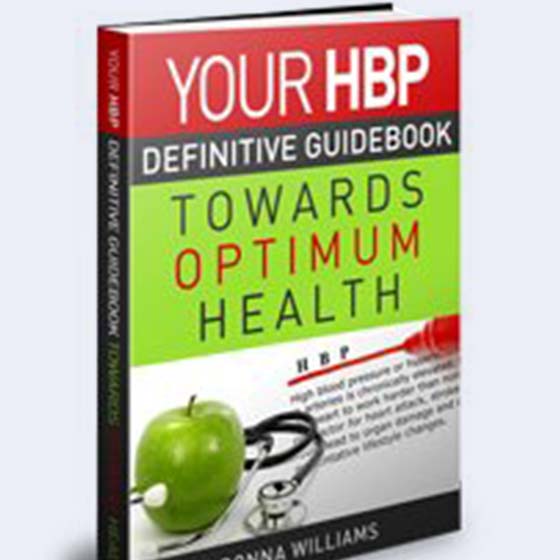


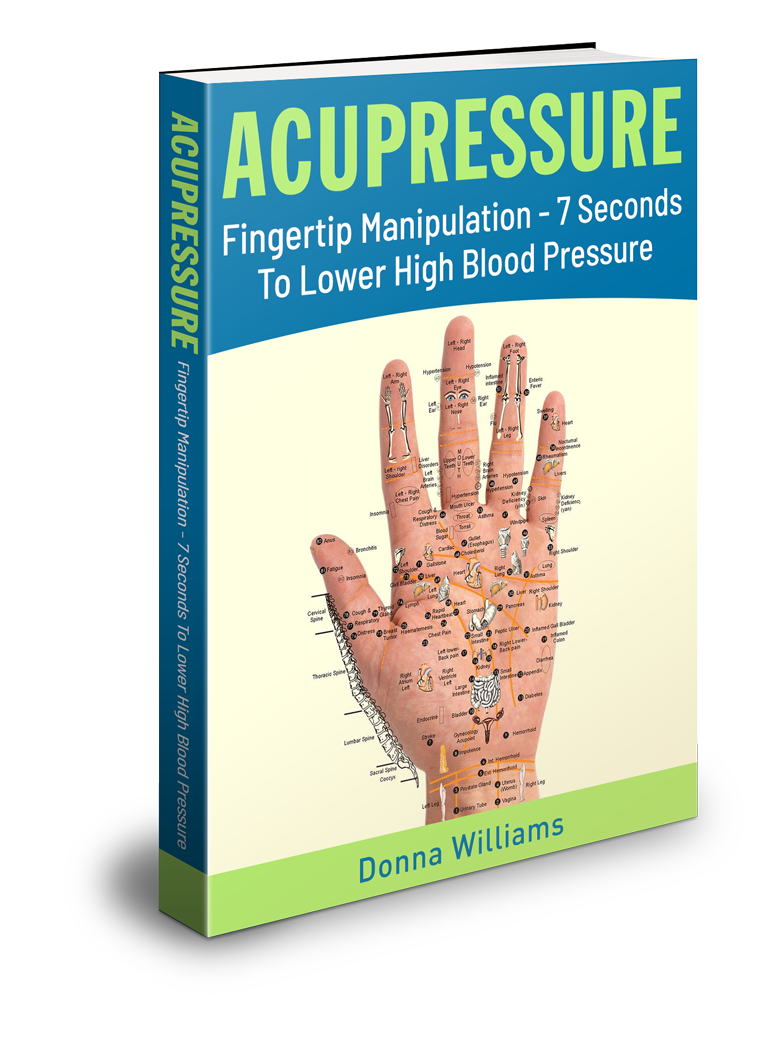
New! Comments
Have your say about what you just read! Leave me a comment in the box below.